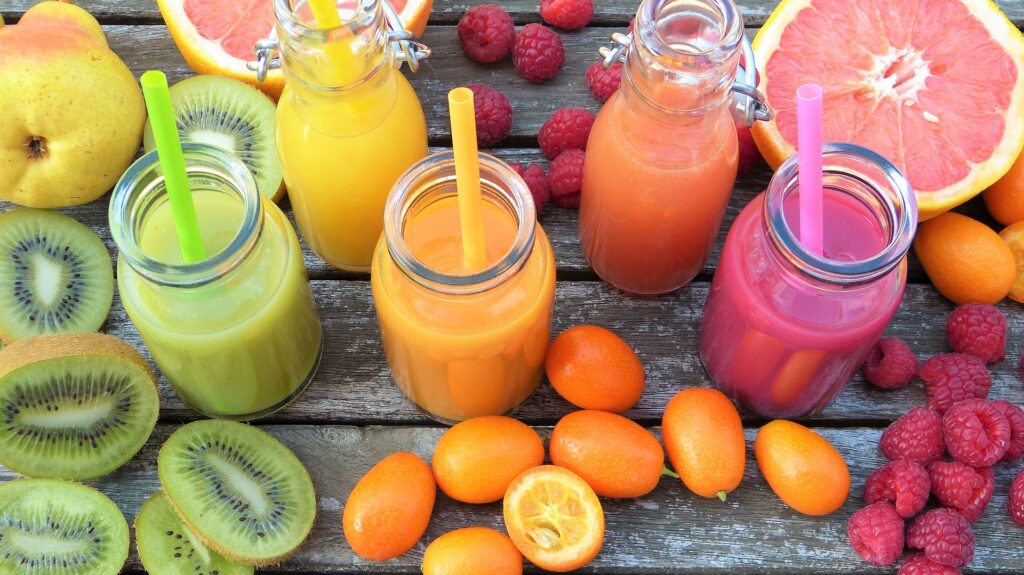
Les smoothies maison sont des boissons à la fois délicieuses et très nutritives. Ces boissons sont un excellent moyen de consommer des fruits, des légumes frais, des protéines et des superaliments (nous reviendrons sur ce terme plus tard dans l’article). Cependant, pour garantir une valeur nutritive optimale, il est important de choisir les bons ingrédients. Les critères à considérer lors du choix des ingrédients peuvent inclure leur valeur nutritive, leur goût, leur texture et leur capacité à se combiner avec d’autres ingrédients.
Dans cet article, nous allons découvrir quels sont les ingrédients qu’il est possible d’ajouter dans ses smoothies et quels sont leurs bienfaits, avec quelques exemples de recettes.
The fruits
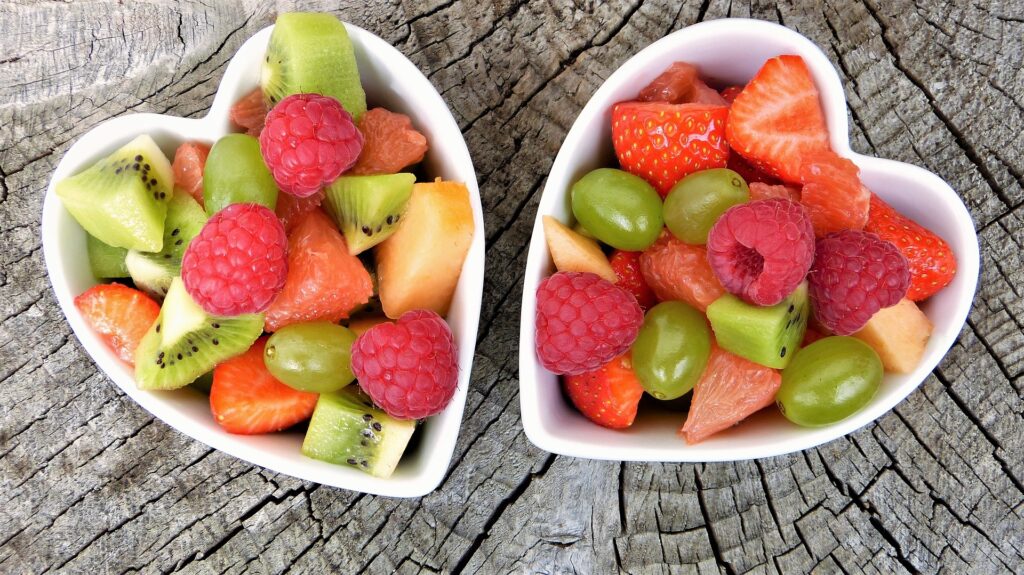
Fruits are the staples of smoothies. They provide a sweet taste and essential nutrients. Fresh and frozen fruits are the best choices for smoothies because they contain vitamins and antioxidants that help maintain good health. It is possible to put all kinds of fruits in your smoothies, here is a selection with many benefits:
- Red fruits : rich in antioxidants, sources of vitamin C, rich in fibre, low in calories. Red fruits help protect against cardiovascular disease, fight against brain degeneration, boost the immune system, fight against aging of the retina and maintain beautiful skin.
- Bananas : les bananes constituent une bonne base pour les smoothies en lui donnant une texture onctueuse. Aussi, elles sont riches en antioxydants, en potassium, en fibres, en vitamines, notamment vitamines A, B6, C, et en minéraux, tels que le potassium, le magnésium et le cuivre. L’avantage de la banane est que c’est un fruit très nourrissant, en étant une source de sucres naturels. De plus, la présence de fibres permet de réduire la vitesse d’assimilation des glucides. Ainsi, la banane est un fruit complet offrant un effet de satiété.
- Apples : rich in vitamins C, A and B, and in nutrients: potassium, phosphorus and magnesium. Apples are also rich in antioxidants, also high in dietary fiber, especially pectin, which can help lower blood cholesterol levels and improve digestive health by regulating intestinal transit. The benefits of apples are therefore numerous: reduction of the risk of cancer, fights cholesterol, reduction of the risk of diabetes, promotes weight loss with an appetite suppressant effect.
- Mangoes : mango is an ultra-vitamin fruit, rich in vitamins C, A, B1, B2, B6 and E. It is also rich in antioxidants. Mango helps fight against cancer, promotes eye care and facilitates intestinal transit.
- Lawyers : riches en fibres, en antioxydants, en vitamines B, C, E et K, et riches en potassium. L’avocat est riche en graisse saines et améliore le cholestérol avec une diminution du mauvais (LDL) et une augmentation du bon (HDL). L’avocat réduit ainsi les risques de maladies cardiovasculaires.
Les combinaisons de fruits peuvent varier selon les goûts et les besoins nutritionnels, mais il est important d’utiliser des fruits frais et de saison pour des saveurs optimales. Les fruits congelés sont également un excellent choix pour les smoothies. Ils sont pratiques et conservent leur teneur en nutriments avec une détérioration freinée par la congélation. Quant à eux, les fruits en conserve ou les fruits séchés contiennent souvent des sucres ajoutés, ils sont donc à éviter ou à limiter dans les smoothies.
The vegetables
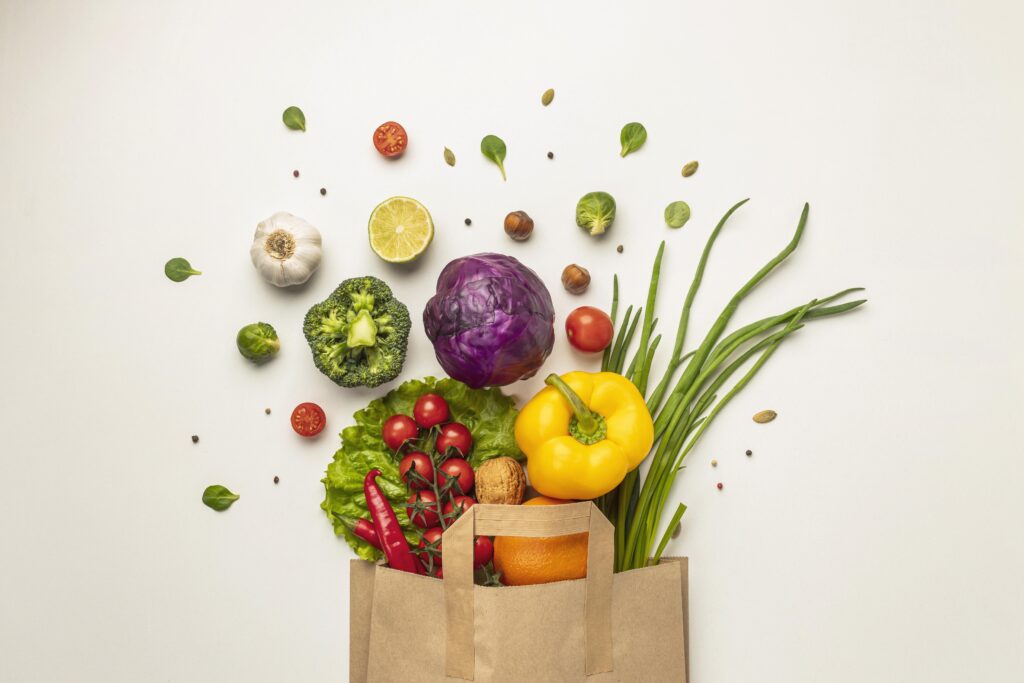
Les légumes sont souvent négligés dans les smoothies, mais ils peuvent ajouter des nutriments essentiels et une saveur intéressante. Les légumes verts, tels que les épinards, le chou frisé et la laitue, sont riches en vitamines et en minéraux, ainsi qu’en fibres qui favorisent la digestion. Les autres légumes, tels que les carottes, les betteraves et les concombres, peuvent également être ajoutés aux smoothies pour varier les goûts.
To properly blend vegetables in smoothies, it is recommended to chop them finely before adding them to the blender. Here are some examples of vegetables you can add to your smoothies:
- Spinach : riches en vitamines et en minéraux : vitamines A, C et K, ainsi qu’en folate (vitamine B9), potassium et fer. Les épinards sont aussi riches en fibres et en antioxydants. Les épinards permettent de réduire les risques de maladies cardiovasculaires et de favoriser la santé intestinale.
- Carrots : sources de fibres, riches en bêta-carotène (précurseur de la vitamine A) et en vitamine B et C, riches en antioxydants, en fibres. Elles contiennent aussi du potassium et du magnésium. Les carottes contribuent à la réduction des inflammations, favorisent la digestion, renforcent le système immunitaire, réduisent les risques de maladies cardiovasculaires et elles permettent l’entretien de la santé de la rétine.
- beets : beets help fight cancer thanks to the presence of betanin, which promotes the destruction of cancer cells. Beets are also rich in antioxidants and potassium that play a role in maintaining heart health. Beets also contain many vitamins: A, K, B2, B9, B1, B5, B6, C and E.
Superfoods
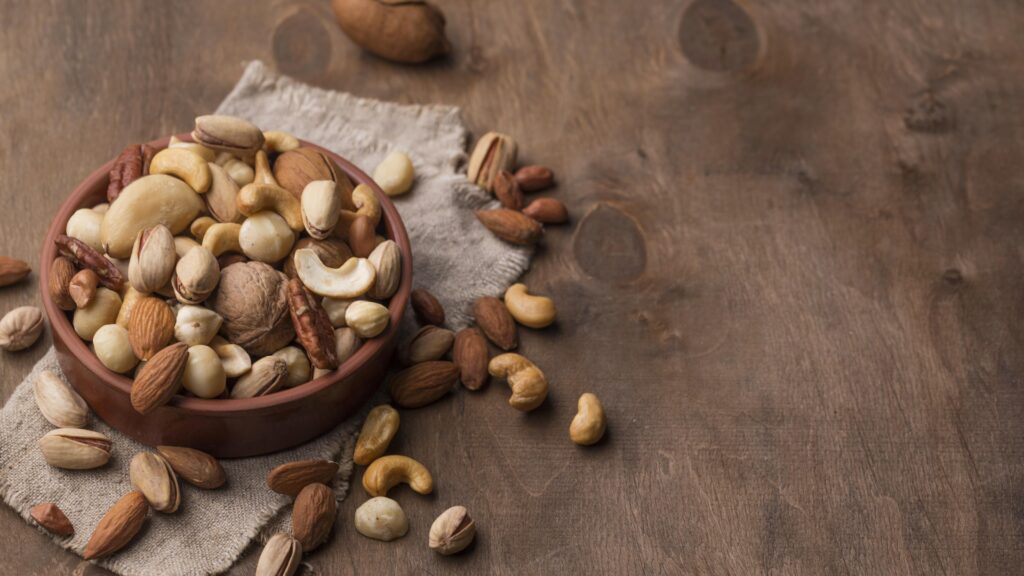
Le terme « superaliment » fait référence à des aliments qui ont une densité nutritionnelle élevée, c’est-à-dire qu’ils contiennent une quantité importante de nutriments essentiels tels que les vitamines, les minéraux, les antioxydants et les acides gras essentiels. Ils sont souvent considérés comme ayant des bienfaits pour la santé supérieurs à ceux des aliments courants. Il en existe de nombreux, en voici quelques-uns :
- Chia seeds : riches en oméga 3, en magnésium et en potassium favorisant la santé du cœur. Les graines de chia sont aussi riches en fibres, en antioxydants et en calcium. Les graines de chia ont aussi l’avantage d’être hydratantes et d’aider à perdre du poids avec un effet rassasiant.
- Spirulina : spirulina is a very complete superfood: rich in protein, iron, vitamins (B2, B3, B6, B9, A and E). In addition, spirulina contains chlorophyll to detoxify the blood.
Il est possible d’acheter de la spiruline et des graines de chia dans les magasins bio. - Ginger : riche en minéraux (manganèse, phosphore, magnésium et calcium, fer) et vitamines (B3 et C principalement). Le gingembre est un aliment regorgeant d’antioxydants. Le gingembre a ainsi une action anti-inflammatoire puissante, favorise la digestion et est bénéfique pour le cœur.
- Cocoa : en plus d’être délicieux, le cacao est également riche en nutriments et offre plusieurs bienfaits pour la santé. En effet, le cacao est riche en flavonoïdes et en magnésium. Les bienfaits du cacao sont nombreux : fort pouvoir antioxydant, anti-stress, réduction des risques cardiovasculaires. Le cacao est donc bon pour la santé, mais à consommer avec modération. Il faut aussi faire attention à prendre du cacao sans sucre.
- Oilseeds (noix, noisettes, amandes…) : les oléagineux ont l’avantage d’être riches en bonnes graisses. Effectivement, ils sont riches en acides gras insaturés (oméga 3 et 6). Ils permettent alors de prévenir les maladies cardiovasculaires en maintenant un bon taux de cholestérol. Les oléagineux sont aussi riches en antioxydants, en fibres, en protéines et en vitamines et en minéraux.
- Honey : honey has an antibacterial and antiseptic action. It is also anti-inflammatory and improves digestion. In addition, honey has an important sweetening power, giving a good taste to smoothies. However, it should be noted that since honey is high in sugar, it is important to consume it in moderation.
Which milk to choose?
There are several types of milks you can use in smoothies. Depending on the milk chosen, the benefits will not be the same. Here are the main types of milk:
- Cow milk : le lait de vache est l’option la plus courante pour les smoothies. Il est riche en protéines, en calcium, en potassium et en phosphore, ce qui en fait un excellent choix pour les smoothies qui sont destinés à être des repas complets. Le lait de vache est aussi riche en vitamines, notamment B2 et B12
- Lait d’amande : le lait d’amande est une alternative populaire au lait de vache. Il est faible en calories et en matières grasses, mais riche en vitamine E, en magnésium, en calcium et en fer. Il est également naturellement sans lactose, ce qui en fait une option pour les personnes intolérantes au lactose. Cependant, le lait d’amande est pauvre en protéines.
- Lait d’avoine : le lait d’avoine est riche en fibres, en vitamines (principalement E et B) ainsi qu’en minéraux. Ce lait contient la même quantité de lipides que le lait de vache, mais il est pauvre en glucides. Ainsi, le lait d’avoine est une des meilleures alternatives pour les personnes voulant perdre du poids.
- Coconut milk : Coconut milk is rich in healthy fats, phosphorus, iron, potassium and has a tropical taste that goes well with fruit. It can also impart a creamy texture to smoothies.
- Soy milk : le lait de soja est riche en protéines, en fibres et en acides gras polyinsaturés. Naturellement, il ne contient pas de calcium, mais il est possible d’en trouver enrichi en calcium. Il est également sans lactose, ce qui le rend approprié pour les personnes intolérantes au lactose.
- Goat's milk : goat's milk is a less common alternative, but rich in proteins, calcium and lipids. This milk is also rich in vitamins A, D, E and B12. However, its lipid concentration makes it fatter. It also has a unique taste that can add variety to smoothies.
C’est à vous de choisir le lait qui convient le mieux à vos préférences et à vos besoins nutritionnels. Gardez à l’esprit que certains laits peuvent affecter le goût et la texture de vos smoothies, alors n’hésitez pas à expérimenter pour trouver votre combinaison préférée.
How to make a smoothie?
Comme vous avez pu le comprendre, les ingrédients cités précédemment comportent de nombreux bienfaits. Ainsi, lors de la conception de sa recette de smoothie maison, il est important de choisir des ingrédients qui vous plaisent tout en veillant à leur qualité nutritionnelle. Essayez d’opter pour des ingrédients riches en vitamines, minéraux, fibres et antioxydants. De cette façon, vous pourrez vous faire plaisir tout en faisant du bien à votre corps.
Pour réaliser votre smoothie, vous aurez besoin d’un blender pour mixer vos ingrédients et obtenir une consistance lisse et crémeuse. Si vous n’avez pas de blender, j’utilise personnellement un modèle de la marque Taurus. Ce blender à plusieurs avantages : il est esthétique, avec un bol en verre. De plus, il est facile à nettoyer avec la possibilité de démonter toutes les pièces notamment la partie avec les lames.
Il est possible de conserver son smoothie, mais son temps de conservation dépend des ingrédients utilisés et des conditions de stockage. En général, les smoothies doivent être consommés immédiatement après leur préparation pour profiter pleinement de leurs bienfaits nutritionnels. Si vous ne pouvez pas le boire immédiatement, vous pouvez le conserver au réfrigérateur pendant quelques heures, mais pas plus de 24 heures. L’idéal est donc de le boire directement pour profiter au maximum de ses bienfaits.
Examples of smoothie recipes
Les recettes sont infinies, que ce soit : smoothie banane-framboise, green smoothie, smoothie banane-fraise, smoothie mangue-banane… il est aisé de s’y perdre. Voici donc quelques exemples, avec leur composition, de smoothies possibles de réaliser. Sentez-vous libre de modifier les recettes à votre guise. Il est important de se faire plaisir, soyez créatif !!
- Energizing Smoothie : 1 banana, 2 oranges, 1/2 lemon, 1 apple, 1 tablespoon of chia seeds, 150 ml of milk
- Detox smoothie : 1 banane, 1 poignée d’épinards, 1/2 citron pressé, 1 cm de gingembre, 2 cuillères à soupe de graines de chia, 200 ml d’eau de noix de coco
- Refreshing smoothie : 1 concombre, 1/2 tasse de feuilles de menthe, 1 citron pressé, 1 tasse de glaçons, 250 ml d’eau
- protein smoothie : 1 banane, 1 poignée d’amande, 1 poignée de noix, 40 g de flocons d’avoine, 150 g de fromage blanc (le moins gras possible), 150 ml de lait
Finissons avec une dernière astuce, il est possible d’ajouter des glacons dans votre mélange avant de mixer pour obtenir un smoothie bien frais, mais aussi pour avoir une texture plus épaisse et onctueuse.
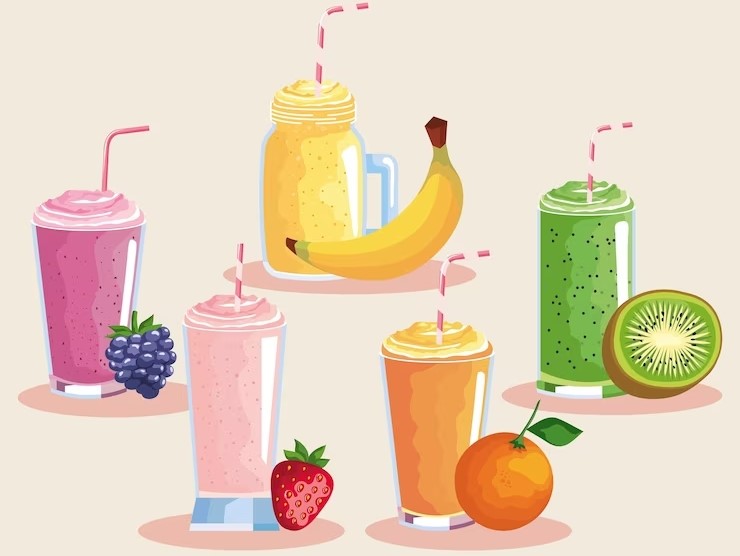
Scientific references
Frozen fruits: Bouzari, A. et al. (2015).
Red fruits: Zhou, Y. et al. (2022).
Bananas: Bhatt, A., & Patel, V. (2015). ; Mitsou, EK et al. (2011).
Apples: Boyer, J. et al. (2004). ; Hyson, DA (2011). ; Johnston, CS et al. (2018).
Mangoes: Amado, LC et al. (2018). ; Anunciacao, PC et al. (2018).
Lawyers: Fulgoni, VL et al. (2013). ; Ghanim, H. et al. (2019).
Spinach: Neelakantan, N. et al. (2019).
Carrots: Kim, Y. et al. (2018).
Beet: Clifford, T. et al. (2015).
Superfoods: Illian, TG et al. (2011). ; Azam, MS et al. (2018). ; Deng, R. et al. (2010). ; Latif R. (2013). ; Guasch-Ferré, M. et al. (2020). ; Kim, Y. et al. (2018). ; Al-Waili, NS (2011).
Pour plus d’informations concernant les références scientifiques, n’hésitez pas à demander dans les commentaires.
*this link is an Amazon affiliate link. This allows us to earn a percentage of purchases made through that link without changing the price you pay. So, by going through this link, you are rewarding us for our work.
Images from Pixabay and Freepik.




Very interesting and very complete article, which makes you want to try smoothies 😉